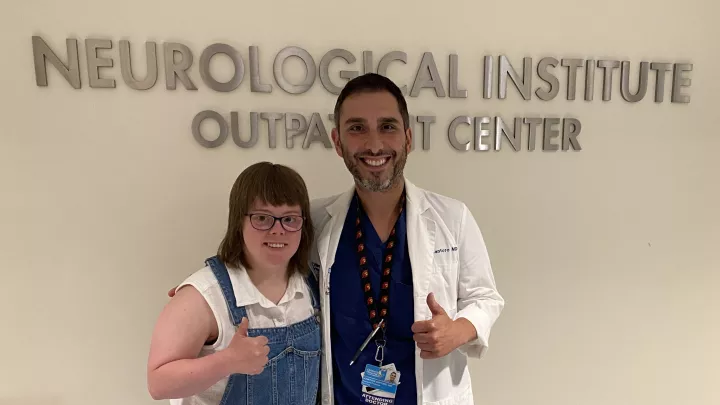The Strategic Therapies for Overcoming Reactive Immunology (STORM) lab investigates the genetic origins of neuroinflammation in rare pediatric diseases. Our work focuses in particular, on Down syndrome and the role of neuroinflammation in the development of related neurologic conditions such as cerebrovascular disease (moyamoya syndrome), epilepsy, Alzheimer’s disease, and emerging neuropsychiatric conditions such as Down syndrome regression disorder (DSRD). Our research also extends to rare genetic disorders including leukodystrophy and Aicardi-Goutières syndrome. In addition, our large neuroimmunology program is involved with a variety of pediatric-onset inflammatory disorders such as multiple sclerosis (MS), myelin oligodendrocyte glycoprotein-associated disease (MOGAD), and autoimmune encephalitis (AE).
The STORM lab is at the forefront of pediatric neuroimmunology research, hosting a variety of translational neuroscience studies, housing the largest pediatric cerebrospinal fluid (CSF) biorepository on the West Coast, and conducting the first clinical trial for DSRD. Our international collaborations in neurologic conditions in Down syndrome, MOGAD, and leukodystrophies allow us to be uniquely linked with cutting-edge research around the world. Through this pioneering work, our lab aims to uncover the mechanisms behind neuroinflammatory disorders and advance our understanding to inform therapeutic intervention and optimize each patient's treatment.
Mission Statement
At the STORM lab, our mission is to prevent neurologic diseases caused by inflammation in children with rare neurogenetic disorders. We spearhead research that bridges the gap between genetics, immunology, and neurology to develop innovative therapies targeting the unique conditions these vulnerable populations face. Our commitment is to transform scientific discoveries into tangible solutions that enhance the quality of life for affected children and their families, driving forward a future where every child can thrive.



